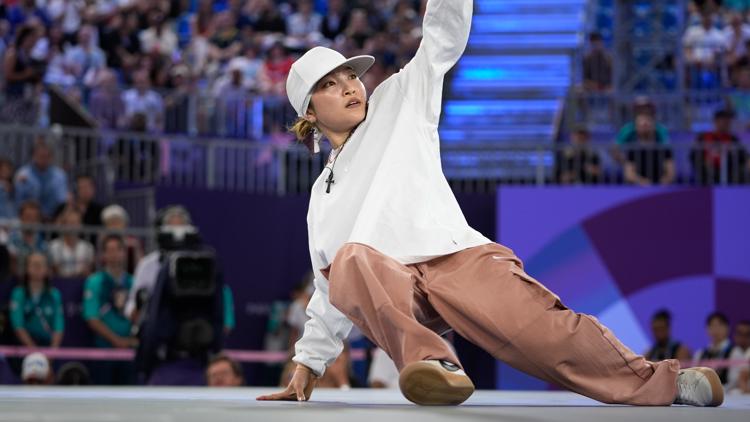The Rise of B-Girls in Olympic Breaking

The world watched in awe as B-girls from around the globe stunned the crowd with their power moves at the Olympics’ first breaking event in Paris, France. The competition was intense, featuring spins, flips, and toprocking that kept the audience on the edge of their seats.
Japan’s b-girl Ami, also known as Ami Yuasa, emerged victorious, claiming the gold medal after an intense battle against b-girl Nicka from Lithuania. The event showcased the skill, creativity, and rhythm of these talented dancers, captivating fans from start to finish.
Throughout the evening, b-girls dazzled with headspins, windmills, and backflips, showcasing the athleticism and artistry of breaking. The energy in the stadium was palpable, creating an unforgettable atmosphere for all in attendance.
American Disappointment at Olympic Breaking
Despite high expectations, both American b-girls, Logistx and Sunny, were eliminated in the early rounds of the competition. This was a setback for the country known as the birthplace of hip-hop and breaking culture, highlighting the fierce competition at the Olympics.
While reflecting on their performances, the American b-girls expressed gratitude for the opportunity to represent their craft on a global stage. Although they fell short of the podium, they left a lasting impression with their passion and dedication to the dance.
Breaking Makes its Olympic Debut
The judging panel, comprised of experienced b-boys and b-girls, scored the breakers based on the Trivium judging system, evaluating technique, vocabulary, execution, musicality, and originality. Each b-girl showcased their unique style and skill, backed by a dynamic soundtrack that set the tone for their performances.
Breaking’s debut at the Olympics was a testament to its place in the world of dance and athleticism. The competition highlighted the cultural significance of hip-hop and breaking, captivating audiences and challenging stereotypes about the art form.
Overall, the event brought together 33 breakers from 15 countries and the Refugee Olympic Team, making history on the Olympic stage. As the competition continues, it’s clear that breaking has earned its place in the spotlight, showcasing the talent and creativity of these remarkable athletes.
As the world witnessed the power and passion of b-girls at the Olympics, it’s evident that breaking has a bright future ahead. The legacy of these dancers will continue to inspire generations to come, leaving a lasting impact on the world of dance and culture.
Associated Press Race & Ethnicity Editor Aaron Morrison contributed to this report from New York.




